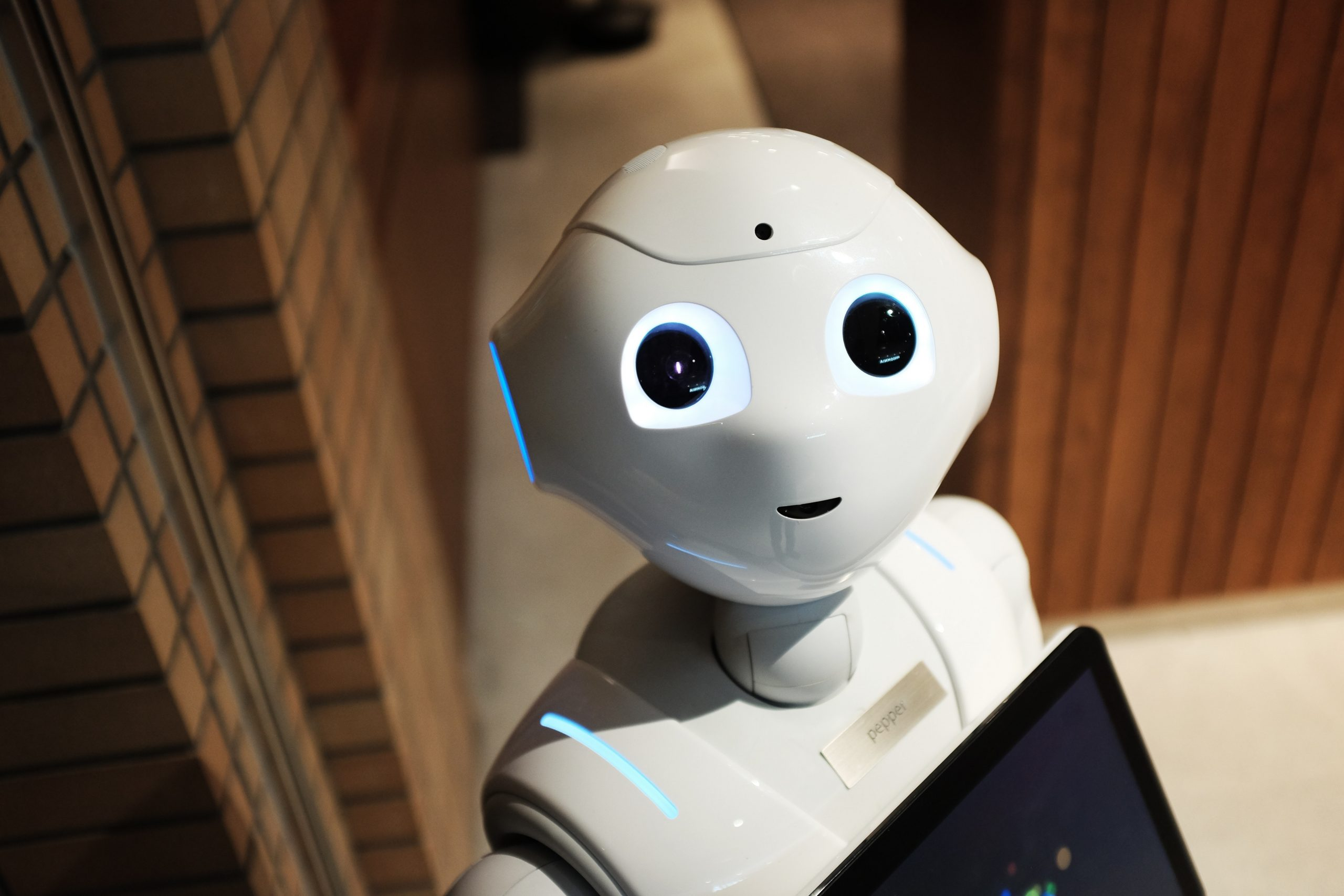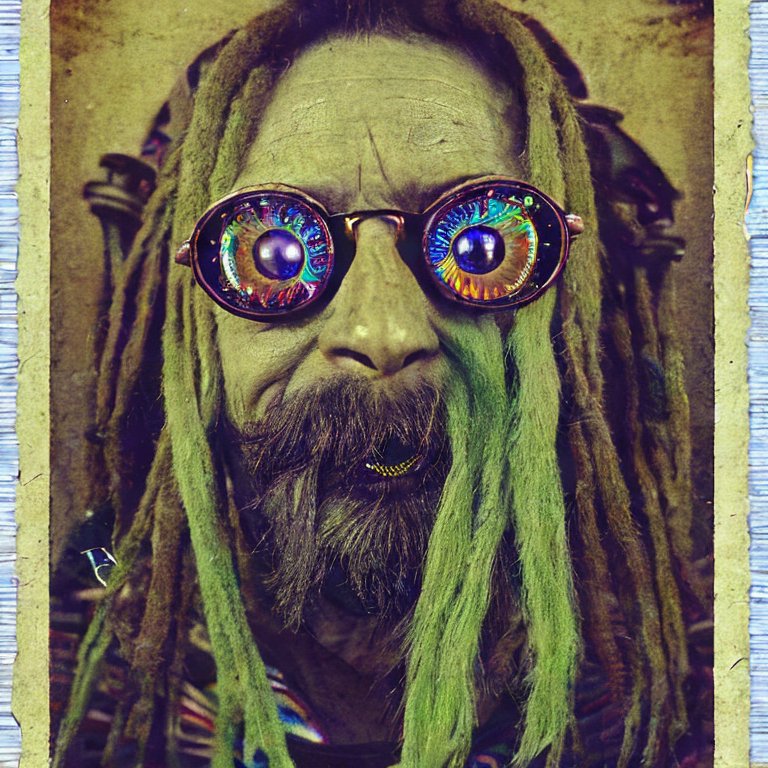Wiki was getting popular when I was in college over 10 years ago. I recall a history professor telling me not to use Wikipedia as source. I am like, okay, I will just use the source wiki uses, which are pretty solid in my opinion. Wiki came a long way.
Yeah, it’s important to remember that wikipedia, itself, isn’t a source, it’s a summary of different sources. It’s a great resource to find sources and get an overview of a topic, though.
Wikipedia does a pretty decent job of eventually being correct, at any given time it can be outrageously inaccurate. Its good to not just use wikipedia entrys and use the sources that are linked there. By using the sources that are cited you are helping to keep wiki trustworthy and helps avoid you using bad information.
It works well to manage the integrity of wiki. I think being able to intuitively navigate between entries by a variety of metrics like edits that have remained unedited the longest/shorest, newest/oldest, etc would be a very good addition to wiki.
Some kind of webarchive of wiki sources would also be amazing so that if the sources disappear or change over time there is a connection to what it was at the time it originally/previously was used as a source on wiki.
And maybe some of this already exists and im just not very good at getting my 4dollars a month worth :P
Wikipedia does a pretty decent job of eventually being correct, at any given time it can be outrageously inaccurate.
Yeah, I agree with this. I work at a high end engineering company, and some engineers have gotten into trouble using things like materials properties that they got from Wikipedia and turned out to be wrong, with unfortunate results. By policy, if we don’t know something like that we’re supposed to ask our tech library to get us the information, and that’s why.
Why not fix theses pages?
They get fixed, but that doesn’t prevent someone from using erroneous information on the next one. Just one bad number can be a big deal.
A bunch of wikipedia sources are already archived on the wayback machine, anything cited to like pre-2010, online, there’s a good chance it got taken down or changed in the last 13 years.
As long as you verify the source still exists. There are so many dead links on Wikipedia.
Archive.org bots replace dead links with working alternatives a lot nowadays. All the more reason to support that modern museum
Please dig a little bit deeper. You may end up with a stack of links to 404 sites instead of actual sources. Just because you copied a citation from WP doesn’t mean the source actually exists, let alone contains the information you seek.
In that case, try using an archived version of the webpage, for example at the Wayback Machine
And it’ll get even better. That being said, it’s worth checking out the Talk pages on the articles you want to use, as they may contain information about what is (and isn’t) displayed.
I started passively editing it and I’ve been incredibly impressed.
Wikipedia is an excellent starting point for information - but saying you can absolutely trust it hell no.
Yup, tried to correct something about a motorcycle manufacturer (no road legal model between year A and Z), linked to another Wikipedia article proving what I was saying (road legal modelS in year W to Y, just before Z), the next day the page was back to its previous version. I linked to the article about the road legal model they pretended didn’t exist and they just edited the page back to its previous version…
How dare you hurt another editor’s feelings with your facts!
It’s like chatGPT then!
at least Wikipedia is human-curated.
Wikipedia is the only piece of the internet I would save from apocalipse. Like, seriously.
Yeah, I have Wikipedia saved to a portable hard drive… Just in case
I don’t know if you’re making fun of me, but, seriously, for me Wikipedia is an enormously valuable resource, much more than, for instance, YouTube (which I use, maybe, twice per year).
There is a lot of People with a copy of Wikipedia, it only takes 8GB. Just for the case something happens. I dont think he is making fun of you.
Edit: this 8 GB was 10 years ago. From another article from 2022 it says 150Gb.
Some folks enjoy reading articles. Some folks enjoy to watch, listen and read (captions) at the same time. Some folks rather ask around and learn through conversations.
I’ve understood that it’s generally easier to learn new things when you use many different channels (audio, imagery etc). To many people but not to all.
Wasn’t making fun of you, just agreeing with you and telling you my fix
It’s less than 90 gig to do a full backup. I can have the sum total of human knowledge on a 1TB external SDD, and still have room for Skyrim and my modlist.
Is there an easy way of doing a full backup?
Funnily enough, wikipedia has the answer
ah I see, ty lol
That’s only the text without any media. If you wanted to save all media on Wikimedia Commons, that would be about 420tb.
You get the images, just not audio or video files.
IIRC this happens in the show or book of Station Eleven where a kid saves Wikipedia offline on his PS Vita (somehow) and it’s the only version of it out there post-apocalypse.
It would also be nice to have a p2p service still up in the internet apocalypse to share all the things we have left.
Could work like the underground networks in Cuba (I say underground but apparently there’s wires everywhere?)
What if you need to remember how to procreate? I hear there are a number of informative videos about how to out there.
But there aren’t on YouTube :-P
I bought an app by Wikimedia CH that allows to download the whole thing. It’s called Kiwix.
you “bought” kiwix? AFAIK it’s free
There is a paid version on the Mac AppStore to support the project
Nah.
I edited a page for a new OS update that was coming out. The page was FULL of misinformation, and I cleaned it up, linked official documentation as sources, etc.
My edits were reverted by some butt hurt guy who originally wrote the page full of misinformation, 0 sources, and broken English.
I reverted back to mine.
He reverted back to his.
He spammed my profile page calling me names, and then reported me to Wiki admins. I was told not to revert changes or I would be perma-banned. I explained how the original page was broken English, misinformation, and 0 sources were cited. They straight up told me they did NOT care.
Stopped editing wiki pages, and stopped trusting them. They didn’t care about factual information. They just wanted to enforce their reverting rule.
Could you link us the article?
deleted by creator
And what’s your source for that claim you keep making?
what’s the article in question?
deleted by creator
What’s your damage?
That’s a shame
deleted by creator
This is the third insightful comment from you on this thread against him. Are you by any chance, the alt of the user who wrote the original article on Wiki of the OS?
Hello butthurt Wikipedia admin
It’s mostly true for articles that do not have large public coverage. Otherwise the number of those who stubbornly fight for the truth will prevail
Pro wrestling wiki pages used to have entrance themes, finishers and signature moves in the wrestler’s page.
One power-mod removed it and it’s gone.
People suck wiki’s cock on the Internet, but it’s a pretty dogshit site and I wish it dies so that a new and better alternative pops up.
Tbh those pieces of trivia don’t feel like encyclopedic information in the first place. A reader need not know specific intro songs to have an encyclopedic overview of wrestling, just that intro songs are often used.
A list containing the specific intro songs is vastly more suited for a fandom repository than an encyclopedia.
That sucks, but I also kind of empathize with wiki mods, cause it’s really hard to know when to cut stuff down. I remember seeing a while back a bunch of people that migrated out from wikipedia to some completely unknown new wiki nobody will ever hear about, because they were working on chronicling all the roads in america with screenshots and notes of location and historical details about it all. Wikipedia didn’t really get it, as it’s more like a kind of academic and news aggregate, and there was nothing really there to aggregate, it was just an infodump of a bunch of different stuff. If wikipedia was a 1-1 map of the world, then it would be the size of the world. Or bigger, if you include historical stuff. No way you’re fitting all that on a 102 gig drive, or whatever the size of wikipedia is. Plus there’s hosting costs to consider, so it’s not like they could do that even if they really wanted.
How dare you trash Wikipedia on Lemmy? Infidel like you should be sent to gulag.
My workplace got a “coronavirus” chat on the corporate chat server. And the known “conspiracy theorist” guy on my team posted a link to some article on some total misinformation mill masquerading as a news source.
I looked up the name of the source on Wikipedia, which said it was a total misinformation mill.
So I linked to the Wikipedia article in the chat.
I work at a fairly big and diverse company, so of course there was more than one conspiracy guy there. It was really surreal watching people who literally think all governments are run by a secret cabal of Democrat extraterrestrial pedophile child-adrenaline junkies attack the trustworthiness of Wikipedia.
Edit: I’d forgotten the name of the “misinformation mill” that originally started that shit storm in the work chat, but I went back and looked it up. It was Project Veritas. https://en.wikipedia.org/wiki/Project_Veritas
RIP in Piss P. Veritas I hope hell is hot for you on the way down
They still exist. They just do not have James O’Keefe who was shit canned.
Wait, James OKeefe was always a can of shit
Please let me live in the world where they were internationally disgraced and every pundit that used them as a resource equally disgraced
Wikipedia was useful for me as a grad student because I could look up a topic and there would be a whole lot of citations I could follow. I never used them as a source, but rather as a curated forum of information.
I’ve been doing exactly the same thing with LLMs recently.
"Tell me about "
“What are the big problems their industry is trying to solve?”
“Who are their biggest competitors?”
“What’s the worst/best thing about them?”Questions like that often give me a great framework to look up specific questions, find relevant articles and get a handle on the sources that are likely to be useful.
I’d definitely be careful about made up stuff, but this sounds like an interesting idea.
Very careful. I never use anything from them directly. I just use them to give me a starting point on what to look for.
For example, if the AI tells me that some company is know for their low latency database, I’ll look around for primary sources on the latency of the database compared to other vendors. I’ll also look for evidence to the contrary.
When “they used to tell us we couldnt trust Wikipedia” it wasn’t in contrast to random websites; it was in contrast to primary sources.
That’s still true today. Wikipedia is generally less reliable than encyclopedias are https://en.wikipedia.org/wiki/Reliability_of_Wikipedia.
The people who tell you not to trust Wikipedia aren’t saying that you shouldn’t use it at all. They’re telling you not to stop there. That’s exactly what they told us about encylopedias too.
If you’re researching a new topic, Wikipedia is a great place for an initial overview. If you actually care about facts, you should double check claims independently. That means following their sources until you get to primary sources. If you’ve ever done this exercise it becomes obvious why you shouldn’t trust Wikipedia. Some sources are dead links, some are not publicly accessible and many aren’t primary sources. In egregious cases the “sources” are just opinion pieces.
Wiki was as reliable as encyclopedias in 2005. It is far superior today.
“Oh, people can come up with statistics to prove anything, Kent. 14% of people know that.”
-Homer Simpson
Just look in this thread. I’m not talking about writing college papers. I’m talking about the boomers saying you can’t trust anything you read on the internet.
Anecdotal, but I’ve never had a teacher tell me why Wikipedia wasn’t a good source. Similarly, I’ve never had a teacher educate students on how to properly use resources like Wikipedia as a starting point for sources. All my peers and I heard was “Wikipedia is bad, never use it, it’s not reliable, don’t trust anything from it.”
I wish I had been taught why and how earlier, but I had to learn why and how myself.
The thing is: in the not to distant future encyclopedias will be a thing of the past.
And interestingly it’s trustable because it’s got no central authority core that can be corrupted
Except there are defacto central authorities governing certain pages.
Not only that there’s a turf war going on for control of them.
Certain ahem religious organizations monitor a variety of pages and snipe any changes they disagree with. Businesses are doing it too.
Which religious orgs?
Probably all of them… Just a guess though.
I haven’t participated in wikipedia enough to see how these turf wars play out. I’ve heard that, unsurprisingly, there are groups that control pages, some opposed and some unopposed. It’s a really interesting thing to me.
I’m afraid of politics, generally speaking. But I bet it would be interesting to be a part of all that.
I think the word you’re looking for is “trustworthy” but yes.
I consider it a separate concept.
yeah, apart from the admins that have absolute authority over everything and can do whatever the hell they want and make up arbitrary rules that disqualify your perfectly valid sources.
Elon Musk Offers to Also Ruin Wikipedia https://www.rollingstone.com/culture/culture-features/elon-musk-wikipedia-twitter-x-encyclopedia-1234861220/
deleted by creator
Definitely not wiremin! it’s scam
Look at their website, they keep babbling about their “protocol”, but all you can find about this supposed protocol is marketing speak, no real technical specification or paper, no code, nothing. How does this thing actually run? Nobody knows.
It’s proprietary, which alone is enough reason to run away from it. And seeing that the dev’s email is gmail, we can be sure they don’t give a fuck about privacy or decentralization.
It seems that this decentralized style starts to be a new trend?
First this Fediverse/Lemmy I heard about. Then The Matrix (messaging platform). And now these Mastodon & WreMin.
Well, if that prevents or slows down the corrupted law of enshittification, then I’m approving it!
deleted by creator
Hardly a loophole - Wikipedia’s greatest strength is as an aggregator of reliable information, and using Wikipedia’s sources is how people SHOULD use it. They just taught you how to use it.
Damn, this is genious. My future kids are going to learn so much cool stuff branded as “loopholes”.
Yup. My friend is a high school teacher, and he did the same thing to his class - told them not to use Wikipedia, but that Wikipedia sources were fine, and the kids did actual research.
“Turns out if you willingly focus on the fear, it diminishes. Neat little loophole”
That is a nice one! Brb, going to internalize it for
my own sakethe theoretical children.
Schools aren’t with it. I was told in the 90s that cursive was the future. We had already progressed beyond word processors and they are having us learn fucking loopy letters.
Uni wasn’t much better. Found myself over thirty years behind industry when I got out.
I think it might depend on the field of study and location, but schools are often a little on the conservative side. Even so “loopholes” as best practices is arguably even better.
It’s basic research and writing. You should absolutely teach your kids common sense practices.
My SO is a little scared I will push too much information on them (I have a degree in geek), so I thought more of the pedagogic value of calling something a loophole/hack/cheat etc…
I agree with that. Word it how they respond to it.
Yes. That’s how you use an encyclopedia.
Big brain move: Tell your students about this neat loophole, gets them started on actual research.
(Ideally - I’d be lying if I said I’ve never used a quote from Wikipedia citing the stated source without actually reading it [usually at 5 am for papers due in two hours], but more often than not Wikipedia was the signpost for the rabbit hole)
In general wikipedia is a great source of knowledge that would be very hard to find elsewhere. That said, it can and often is edited by anyone. I’ll never forget a friend sent me a link to file system comparison chart which included ReiserFS and someone added the last column ‘Murders your wife’ to ‘Features’ https://en.wikipedia.org/w/index.php?title=Comparison_of_file_systems&oldid=209063556#Features

Did they at least cite the source for that?
Source: just trust me bro
was it wrong tho?
technically, the filesystem wasn’t implicated beyond the f’d up way his brain was working at the time. smh
Wikipedia has been dealing with AI and bots since someone made a 2000 census article writer in 2003. Hopefully they are resistant to the rise of Chatbots
my understanding from an English professor is less about its reliability of information, but more its reliability regarding citing sources. you can’t cite something that consistently changes
The schools should have used wikipedia as an opportunity to teach media literacy. You don’t use wiki as your source, you go to the cited sources and investigate those. Use the cited sources a in your school reports.
Yet I see some teachers themselves using “Source: Google images” lmao
That might be one reason why some warned against using it, but I definitely had teachers in middle school and high school that explicitly said not to use it because it could be changed by anyone including people who could be wrong or lying.
definitely not incorrect, for sure
Technically you could cite a version in the version history. But Wikipedia isn’t about being right. It’s about trying to get It better
And the ability for folks to change it and provide inaccurate sources. It’s peer reviewed for the most part and academia wants officially peer reviewed sources.
Hmm, interesting. When I was in HS, I would paraphrase Wiki and use their citations in my bibliography 😆
It’s also just often completely inaccurate. The standards it uses to cite works make them pretty much useless: any good information on Wikipedia is on there by accident.
That is wildly inaccurate and you know it. There are like 6.5 million articles on Wikipedia and the majority (since people are pedantic, we’ll say 50.1%) are well cited and accurate
Have you looked at what’s considered a valid “source” on Wikipedia?
The fact that there’s an odd good article does not make the site a reliable source of anything.
Only if the source checks out
Oh man the rightoids came out of the woods for this shower thought.


















